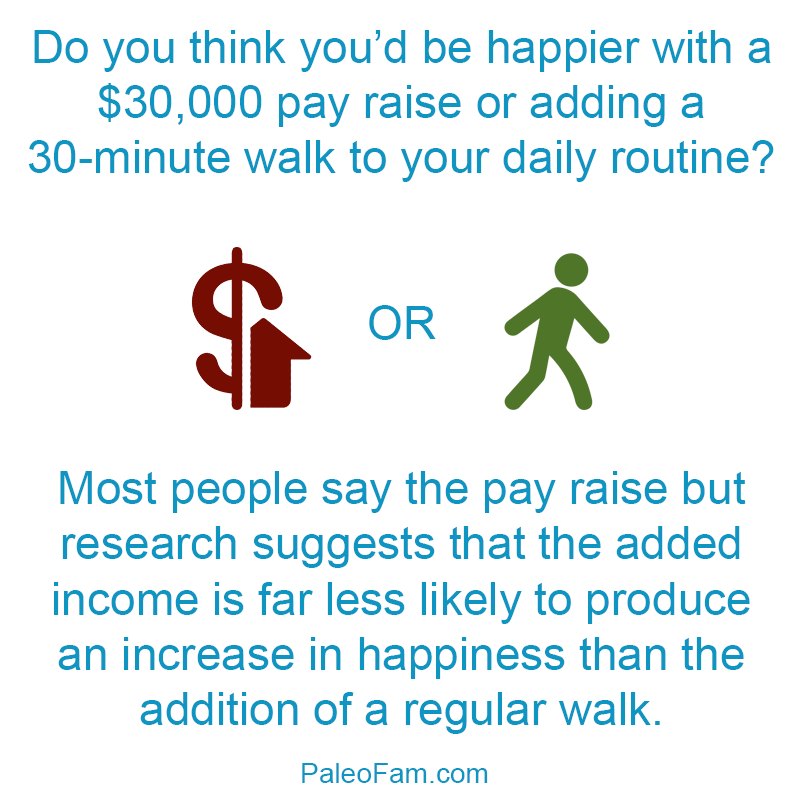Does Money or Exercise Make You Happier?

Reading Kerry Patterson’s Influencer, I was intrigued by this quote hinting that money can’t buy happienss, but exercise makes you happy:
The average human being is actually quite bad at predicting what he or she should do in order to be happier, and this inability to predict keeps people from, well, being happier. In fact, psychologist Daniel Gilbert has made a career out of demonstrating that human beings are downright awful at predicting their own likes and dislikes. For example, most research subjects strongly believe that another $30,000 a year in income would make them much happier. And they feel equally strongly that adding a 30-minute walk to their daily routine would be of trivial import. And yet Dr. Gilbert’s research suggests that the added income is far less likely to produce an increase in happiness than the addition of a regular walk.

I was unable to find the research referred, but there is data on the issue and it looks to be correct: exercise makes you happy, but an additional $30,000—especially if you already earn over $75,000/year—is not very important to happiness.
Exercise Makes You Happy
This study shows the link between physical activity and happiness:
All the observational studies reported positive associations between physical activity and happiness. As little as 10-min physical activity per week or 1 day of doing exercise per week might result in increased levels of happiness.
Money Doesn’t Make You Happy
On the other hand, money can buy happiness up to a point. But once someone has all the necessities taken care of, more money does not increase happiness. A landmark study by and
We report an analysis of more than 450,000 responses to the Gallup-Healthways Well-Being Index, a daily survey of 1,000 US residents conducted by the Gallup Organization. We find that emotional well-being (measured by questions about emotional experiences yesterday) and life evaluation (measured by Cantril’s Self-Anchoring Scale) have different correlates. Income and education are more closely related to life evaluation, but health, care giving, loneliness, and smoking are relatively stronger predictors of daily emotions. When plotted against log income, life evaluation rises steadily. Emotional well-being also rises with log income, but there is no further progress beyond an annual income of ~$75,000.






